ড. শরীফ মঈনুল হাসান একজন বাংলাদেশী বিজ্ঞানী, বর্তমানে জাপানের কিয়োটোতে অবস্থিত একটি স্বাস্থ্য সংস্থার গবেষণা ও উন্নয়ন বিভাগে (R&D) গবেষক হিসেবে কর্মরত। তিনি খুলনা বিশ্ববিদ্যালয় থেকে ২০০২ সালে বায়োটেকনোলজি বিষয়ে স্নাতক ডিগ্রি অর্জন করেছেন এবং এরপর তথ্য প্রযুক্তিতে এক বছরের ডিপ্লোমা সম্পন্ন করেন।
প্রাথমিক পেশাগত অভিজ্ঞতা অর্জনের পর তিনি জাপানে যান এবং টোকিও বিশ্ববিদ্যালয়ে মাস্টার্স সম্পন্ন করেন। এখানে তিনি নাকের মাধ্যমে ভ্যাকসিন দেওয়ার উপর গবেষণা করেন, বিশেষ করে জাপানিজ এনসেফালাইটিস এবং র্যাবিস ভাইরাসের ভ্যাকসিন নিয়ে। ২০১৩ সালে তিনি একই বিশ্ববিদ্যালয় থেকে পিএইচডি ডিগ্রি অর্জন করেন, যেখানে তিনি অত্যন্ত সংবেদনশীল রোগ নির্ণয় পদ্ধতি উদ্ভাবন করেন। তার গবেষণা ক্ষেত্রের মধ্যে রয়েছে বায়োমার্কার আবিষ্কার, রোগ নির্ণয়, এবং RNA ট্রান্সক্রিপ্টোম ডেটাসেট ব্যবহার করে AI-ভিত্তিক ঔষধ গবেষণা। বর্তমানে তিনি D-iOrgans Atlas-এর উপর কাজ করছেন, যা ২৪টি মানুষের অঙ্গের RNA বিশ্লেষণ করে ঔষধের প্রতিক্রিয়া ও পার্শ্ব-প্রতিক্রিয়ার তথ্য সরবরাহ করে।
💬 প্রশ্নোত্তর পর্ব:
প্রশ্ন: আপনি নিজেকে সংক্ষেপে পরিচয় করাতে পারেন কি?
উত্তর: আমি শরীফ মঈনুল হাসান, একজন বাংলাদেশী বিজ্ঞানী, বর্তমানে জাপানের কিয়োটোতে একটি স্বাস্থ্য সংস্থার গবেষক। আমার শিক্ষাজীবন শুরু হয় খুলনায় এবং খুলনা বিশ্ববিদ্যালয় থেকে বায়োটেকনোলজি বিষয়ে স্নাতক ডিগ্রি অর্জন করি। এরপর মাস্টার্স এবং পিএইচডি সম্পন্ন করি জাপানের টোকিও বিশ্ববিদ্যালয়ে, যেখানে আমি নাকের মাধ্যমে ভ্যাকসিন এবং রোগ নির্ণয় পদ্ধতি নিয়ে গবেষণা করেছি।
প্রশ্ন: বর্তমানে আপনার গবেষণার ক্ষেত্র কী?
উত্তর: আমি ২৪টি মানুষের অঙ্গের RNA ট্রান্সক্রিপ্টোম বিশ্লেষণ করে ঔষধের প্রভাব ও পার্শ্ব-প্রতিক্রিয়া নিয়ে কাজ করি। আমাদের D-iOrgans Atlas AI-ভিত্তিক ঔষধ উন্নয়ন এবং বায়োমার্কার আবিষ্কারে সহায়ক।
প্রশ্ন: পিসিআর কী এবং এটি আপনার পিএইচডিতে কিভাবে ব্যবহার হয়?
উত্তর: PCR বা Polymerase Chain Reaction হলো DNA পুনঃউৎপাদনের পদ্ধতি। আমার পিএইচডিতে আমি রিয়েল-টাইম PCR এবং Open-Sandwich Immunoassay মিলিয়ে “OPEN-Sandwich IMMUNO-PCR” পদ্ধতি উদ্ভাবন করেছি, যা অত্যন্ত সংবেদনশীলভাবে Estradiol এবং Bone Gla Protein (Osteocalcin) নির্ণয় করতে পারে।
প্রশ্ন: বায়োমার্কার কীভাবে ঔষধ গবেষণায় ব্যবহৃত হয়?
উত্তর: বায়োমার্কার হলো রোগের জৈবিক সূচক। এগুলি রোগ নির্ণয়, অগ্রগতি মূল্যায়ন এবং ঔষধের কার্যকারিতা নির্ধারণে ব্যবহৃত হয়। ঔষধ গবেষণায় বায়োমার্কার ডোজ নির্ধারণ, চিকিৎসার প্রতিক্রিয়া এবং দীর্ঘমেয়াদী প্রভাব বোঝার জন্য গুরুত্বপূর্ণ।
প্রশ্ন: Hay fever বা অ্যালার্জি নিয়ে আপনার গবেষণা কেমন হয়েছে?
উত্তর: জাপানের জুনতেন্ডো বিশ্ববিদ্যালয়ে আমি সিডার এবং জাপানি সাইপ্রেস গাছের পরাগ দ্বারা সৃষ্ট হায় ফিভার বা অ্যালার্জিক রাইনাইটিস নিয়ে গবেষণা করেছি। প্রথমবারের মতো আমি নাকের এপিথেলিয়াম কোষে Filaggrin প্রোটিন সনাক্ত করেছি, যা এলার্জি এবং কোষের কাঠামোর পরিবর্তনের সাথে সম্পর্কিত।
প্রশ্ন: গবেষণার সবচেয়ে চ্যালেঞ্জিং বিষয় কী মনে করেন?
উত্তর: প্রযুক্তির পরিবর্তনের সঙ্গে মানিয়ে চলা এবং বিদেশের শিল্প-ভিত্তিক প্রকল্পে সংযুক্ত থাকা সবচেয়ে বড় চ্যালেঞ্জ।
প্রশ্ন: জাপানে গবেষণার পরিবেশ কেমন?
উত্তর: জাপানে শিক্ষার্থীরা ছোটবেলায় থেকে নিজের আগ্রহ অনুযায়ী সিদ্ধান্ত নিতে পারে। গবেষণা ও শিক্ষা পরিকল্পিত, এবং সরকার ও সমাজ বিজ্ঞান ও প্রযুক্তি ক্ষেত্রে প্রচুর সহায়তা করে।
প্রশ্ন: ভবিষ্যতের পরিকল্পনা কী?
উত্তর: বাংলাদেশে একাডেমিক গবেষণা করতে চাই, বিশেষ করে স্বাস্থ্য, পরিবেশ ও খাদ্য সম্পর্কিত বায়োটেকনোলজি প্রজেক্টে। যেমন কম খরচে রোগ নির্ণয় পদ্ধতি, পরিবেশবান্ধব এনজাইম এবং এন্টিবডি তৈরি।
প্রশ্ন: তরুণ বিজ্ঞানীদের জন্য আপনার পরামর্শ কী?
উত্তর: সততা, আন্তরিকতা, আত্মবিশ্বাস এবং কঠোর পরিশ্রম গবেষণার মূল। বিষয়টি গভীরভাবে বোঝা এবং জার্নাল পড়া, গবেষকদের সঙ্গে যোগাযোগ রাখা জরুরি।
ড. শরীফ মঈনুল হাসানের গবেষণা নাকের ভ্যাকসিন, সংবেদনশীল বায়োমার্কার নির্ণয় এবং ট্রান্সক্রিপ্টোম ডেটা বিশ্লেষণের ক্ষেত্রে নতুন দিগন্ত উন্মোচন করছে। biggani.org-এর পক্ষ থেকে আমরা তার আগামীর গবেষণার জন্য শুভেচ্ছা জানাই এবং আশা করি তার উদ্ভাবনী কাজ বাংলাদেশি তরুণ বিজ্ঞানীদের জন্য প্রেরণার উৎস হবে।
Advancing Healthcare Through AI and Transcriptomics – Interview with Dr. Sharif Moinul Hasan
Dr. Sharif Moinul Hasan is a Bangladeshi scientist currently working as a researcher in the R&D department of a healthcare company in Kyoto, Japan. He holds a Bachelor’s degree in Biotechnology from Khulna University (2002) and a Diploma in Information Technology. After gaining initial professional experience in pharmaceutical and diagnostic companies in Bangladesh, he moved to Japan to pursue advanced studies.
Dr. Hasan completed his Master’s degree at the University of Tokyo, focusing on nasal delivery of vaccines against Japanese Encephalitis and Rabies viruses in animal models. He subsequently earned his PhD from the University of Tokyo (2013), developing highly sensitive disease detection techniques combining real-time PCR and open-sandwich immunoassays. His research includes biomarker discovery, disease diagnostics, and drug response analysis using transcriptome datasets. Currently, he contributes to the D-iOrgans Atlas, a large-scale resource mapping RNA expression across 24 human organs, supporting AI-based drug development and biomarker research.
💬 Q&A Session:
Q: Could you briefly introduce yourself and your background?
A: I am Sharif Moinul Hasan, a Bangladeshi scientist currently working in a healthcare company in Kyoto, Japan. I grew up in Khulna and studied at local schools and Khulna University, where I earned my Bachelor’s degree in Biotechnology in 2002. I completed a diploma in Information Technology and worked in the pharmaceutical sector in Dhaka. My research interest in disease spread and immunity led me to pursue a Master’s at the University of Tokyo, focusing on nasal vaccine delivery against Japanese Encephalitis and Rabies viruses. I completed my PhD in 2013, followed by academic and industrial postdoctoral research in Japan.
Q: What is your current research focus?
A: I work in R&D to study drug effects and side effects across 24 human organs using RNA transcriptome datasets. Our D-iOrgans Atlas supports AI-based analysis of drug efficacy and biomarker discovery for diseases such as diabetes, high cholesterol, neurological disorders, and bone diseases. A recent paper on this research was published in an open-access journal by Cell Press.
Q: What is PCR, and how was it involved in your PhD?
A: PCR, or Polymerase Chain Reaction, is a method to amplify DNA for analysis. It’s widely used to detect pathogens, cancer markers, and other molecules. My PhD combined sensitive real-time PCR with open-sandwich immunoassays to create a novel method called “OPEN-Sandwich IMMUNO-PCR,” allowing highly sensitive detection of biomarkers like estradiol and bone Gla protein (osteocalcin). This research was published in two international journals. I also used PCR to study recombinant antibodies for influenza virus detection and in industrial enzyme development projects.
Q: How are biomarkers used in drug discovery?
A: Biomarkers are measurable indicators of biological states or diseases. They help doctors assess disease severity, monitor progression, and guide drug choice. In drug discovery, biomarkers assist in dose optimization, evaluating treatment response, and identifying effective therapeutic strategies. Molecular biomarkers are increasingly important in both preclinical and clinical research.
Q: Can you describe your research on hay fever?
A: During my postdoctoral research at Juntendo University, Tokyo, I studied allergic rhinitis caused by cedar and Japanese cypress pollen. I identified a structural protein called Filaggrin in nasal epithelial cells. Mutations in this protein can alter cell structure, allowing allergens to penetrate and trigger allergic reactions. Understanding such mechanisms is key to developing precise treatments for hay fever.
Q: What challenges do you face in your research?
A: The main challenge is keeping up with rapidly evolving technology and adapting to project-based industrial research. Research jobs are often short-term, and integrating into foreign research environments requires flexibility.
Q: How is the research environment in Japan?
A: Japan has a highly structured research environment. Students receive early guidance to focus on their interests, and government and societal support for science is strong. The language advantage allows deep understanding of complex concepts. Japanese culture emphasizes discipline, hard work, and patriotism, making it an ideal place for research.
Q: What are your future research plans?
A: I hope to work in academia in Bangladesh, focusing on low-cost disease and toxin detection, environmentally friendly enzymes, and antibody development. These areas are vital for public health, environmental safety, and agricultural biotechnology.
Q: What advice would you give to young scientists?
A: Integrity, purpose, hard work, confidence, and honesty are essential for researchers. Understanding topics deeply is more important than rote learning. Reading scientific literature, networking, and using online tools like ResearchGate, LinkedIn, and YouTube can be very helpful. Language proficiency also supports opportunities abroad.
Dr. Sharif Moinul Hasan’s work exemplifies the intersection of molecular biology, biotechnology, and AI-driven drug research. His studies on nasal vaccines, sensitive biomarker detection, and transcriptome-based drug analysis contribute to both scientific knowledge and public health applications. The biggani.org team extends its best wishes to Dr. Hasan for continued success, hoping his innovative research inspires young scientists in Bangladesh and globally.

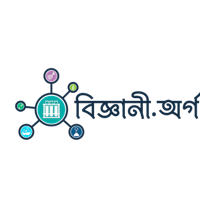
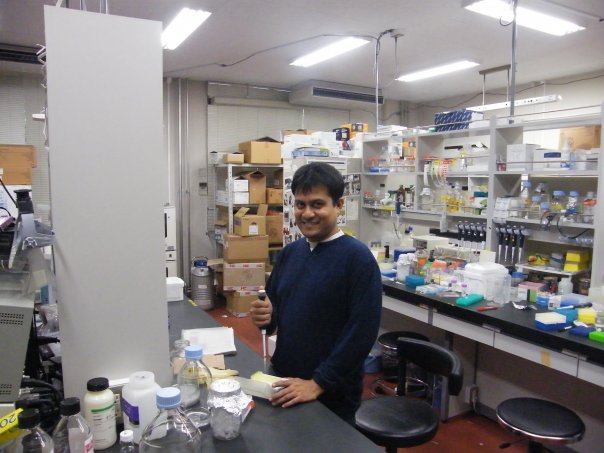



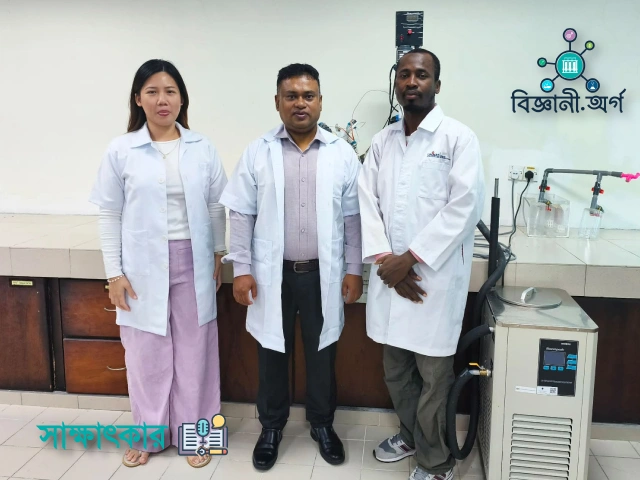
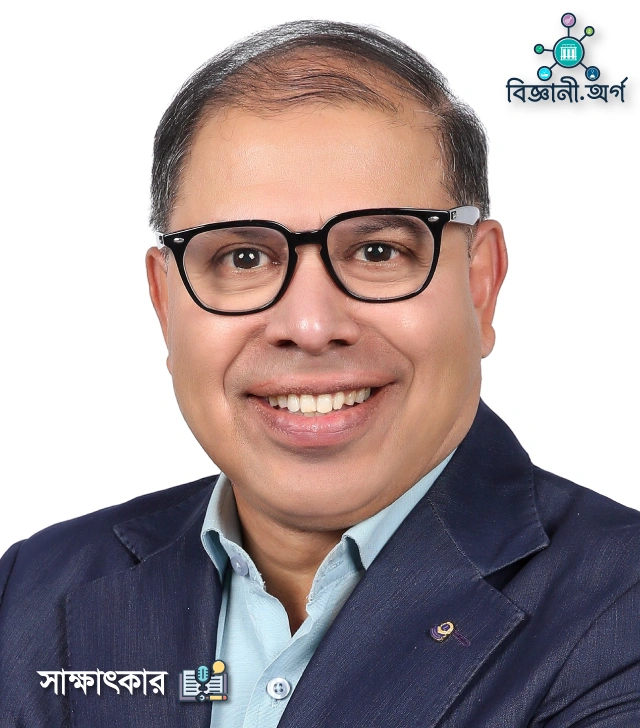
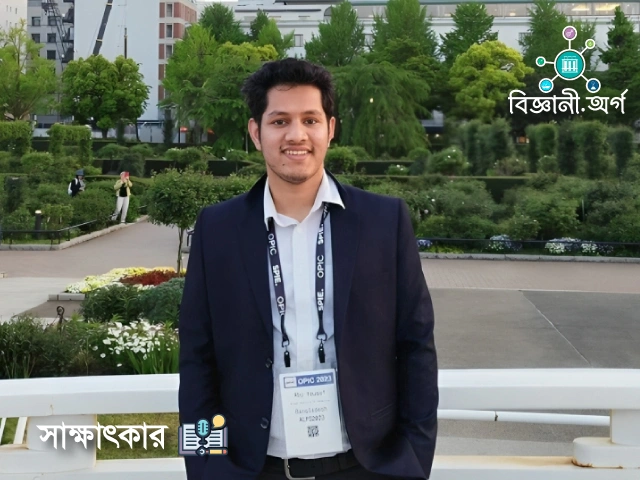
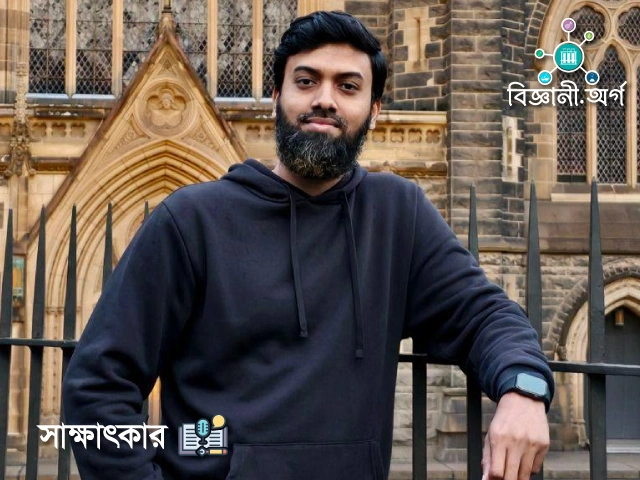

Leave a comment